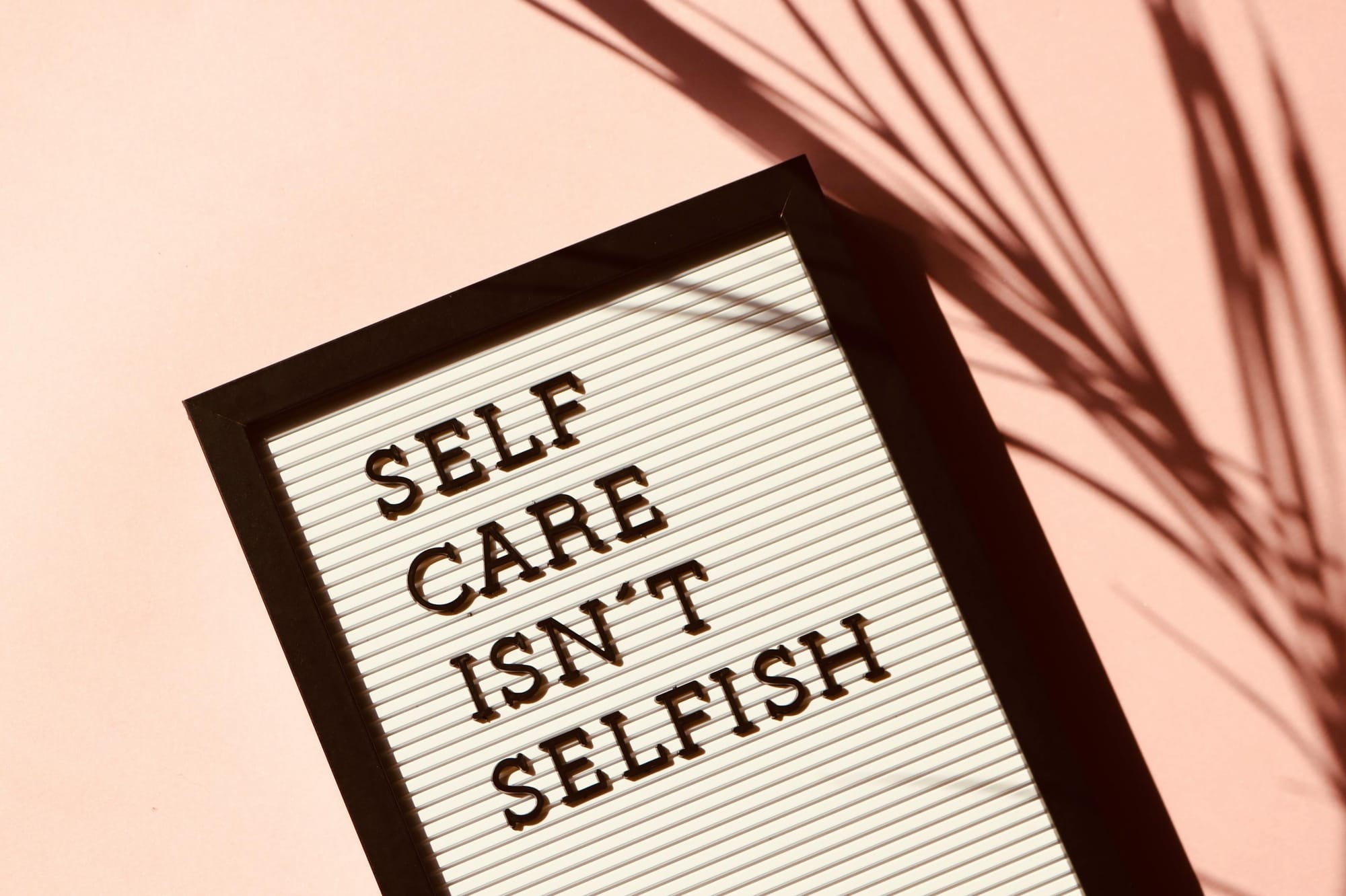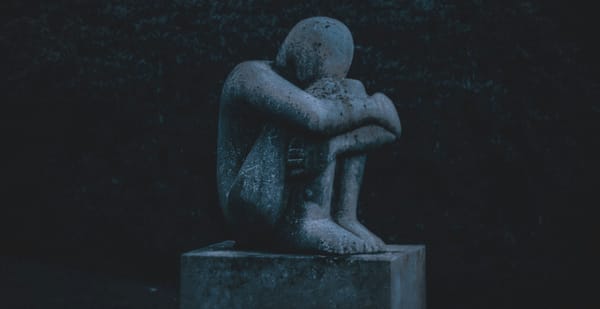Will AI Replace Therapists? The Truth About AI in Mental Health Care

Will AI replace therapists? It’s a question more people are asking as AI tools like chatbots and mental health apps become more popular. But here’s the short answer: No, AI will not replace therapists. It will help more people reach them. Counterintuitive? Keep reading.
At Aitherapy, we didn’t start with the question “How do we take therapists’ jobs?”
We started with:
“How can we make mental health support more accessible to the people who need it but aren’t getting it?”
The truth is, millions of people are quietly suffering, waiting for appointments, unable to afford care, or unsure if they even “deserve” therapy. AI can’t replace the empathy and expertise of a licensed therapist. But it can offer a starting point. A way to talk. A way to begin healing.
And that’s where Aitherapy comes in. Our AI is trained in evidence-based Cognitive Behavioral Therapy (CBT) techniques to help users reframe thoughts, manage emotions, and reflect safely. We’re not here to replace human therapists, we’re here to lead more people to them.
In this article, we’ll explore:
- Why the real problem isn’t AI, it’s access
- What AI tools can and can’t do
- How Aitherapy fits into the future of mental health
- Why the best path forward is humans and AI working together
Let’s dive in.
A Global Mental Health Access Crisis
When people hear about AI in therapy, the first fear is often: “Are we replacing humans?” But the real question is who’s being left out of care right now?
According to the World Health Organization, over 970 million people worldwide live with a mental health condition, yet the majority don’t receive any form of treatment. In low- and middle-income countries, up to 85% of people with mental illness go untreated. Even in high-income countries, that number hovers around 50%.
In the United States:
- More than 122 million people live in mental health professional shortage areas
- Nearly half of all counties don’t have a single licensed psychologist or psychiatrist
- Wait times for therapy often exceed 6 weeks, and costs can reach $150+ per session without insurance
And that’s just the structural side. There are emotional barriers too:
- Stigma: Many still feel ashamed to ask for help
- Uncertainty: People often don’t know if their struggles “qualify” for therapy
- Energy and time: Depression, anxiety, and stress make it harder to research options, schedule appointments, or even get out of bed
So when we ask whether AI will replace therapists, it’s important to remember:
For millions of people, there isn’t a therapist available to begin with.
That’s why tools like Aitherapy exist, not as replacements, but as accessible, judgment-free starting points. For someone who can’t afford a therapist or is on a waitlist, having even one safe place to talk can make all the difference.
And when AI meets people in that gap, it doesn’t take them away from therapy, it helps them realize they might actually benefit from it.
What AI Can Do (and Can’t Do)
AI has made incredible progress in the mental health space, especially in delivering Cognitive Behavioral Therapy (CBT) techniques through chatbots like Aitherapy. But it’s important to separate the hype from the reality.
What AI Can Do Well
1. Provide 24/7, stigma-free support
Unlike traditional therapy, which requires scheduling and often comes with emotional hurdles, AI is always available. You don’t have to wait for a Tuesday at 3PM, you can talk whenever you need it.
2. Deliver evidence-based tools
Many mental health chatbots are trained in CBT, which is one of the most researched and effective methods for treating anxiety, depression, and stress.
A 2022 meta-analysis found that AI-delivered CBT significantly reduced symptoms of anxiety and depression.
3. Help users reflect, reframe, and self-soothe
A good AI tool asks the right questions. It can help users identify negative thought patterns, challenge cognitive distortions, and find calm, often in just a few minutes.
4. Encourage self-awareness and early help-seeking
One of Aitherapy’s key goals is to help people realize they might benefit from talking to a human therapist. For many, AI becomes the first safe place they’ve ever spoken honestly about how they feel.

What AI Can’t Replace
1. Deep emotional relationships
Therapy is more than just problem-solving. The relationship itself is healing. AI can simulate empathy, but it doesn’t truly understand your story the way a human can.
Research shows that the therapeutic alliance, the connection between therapist and client, is one of the strongest predictors of success.
2. Crisis intervention and diagnosis
AI is not equipped to handle emergencies. It can’t detect suicidal ideation reliably or intervene in a mental health crisis. It also doesn’t provide formal diagnoses, which are essential for long-term care plans and insurance.
3. Nuanced cultural, personal, or trauma-informed care
AI lacks context. It may misinterpret complex emotions, identities, or culturally sensitive issues that trained therapists are equipped to navigate.
So What’s the Role of AI in Mental Health?
Think of AI as a bridge, not a destination.
It can support users in between therapy sessions, offer help when nothing else is available, and gently guide people toward getting more care when they need it.
The most responsible AI therapy tools, like Aitherapy, are built with one purpose:
Make mental health support more accessible without pretending to be a human therapist.
Aitherapy’s Approach: Complement, Not Compete
At Aitherapy, we didn’t build our AI to compete with therapists. We built it to lead more people toward therapy and give them a safe place to begin when therapy isn’t accessible.
Many people use Aitherapy as their first step into mental health care. Some are unsure if they need therapy. Some are on waitlists. Some have had bad experiences in the past. And others simply need support outside the 50-minute weekly window.
Our Core Principles:
1. Trained in CBT, not trying to imitate humans
Aitherapy is powered by evidence-based Cognitive Behavioral Therapy techniques. It asks helpful questions, prompts reflection, and helps users reframe distorted thinking.
But it never pretends to be human. We’re clear with every user that they’re chatting with an AI trained for support.
2. Designed to lead people to real therapists
Aitherapy regularly suggest seeing a licensed therapist, especially when it detect signs of deeper emotional distress. We include mental health resources in every conversation and we’re building partnerships with therapist directories to help users take that next step.
We don’t want to replace the therapist. We want to remind people that they deserve one.
3. Focused on safety, privacy, and emotional alignment
Every conversation is private, with HIPAA-aligned protections in place. None of our chat data is ever used to train our models. Users are never judged. They can talk as much or as little as they want, and always in a space that feels calm, not clinical.
A Quick Example:
Let’s say someone is spiraling with anxious thoughts at 2am.
They open Aitherapy and type, “I can’t stop thinking about how I messed up today.”
Aitherapy helps them slow down, identify the thought pattern, and reframe it using CBT.
That’s the real win.

When AI Support Helps
Aitherapy is already being used by thousands of people every day. Not as a replacement for therapy but as a way to manage day-to-day mental health challenges, explore how they feel, and take the first steps toward deeper healing.
Let’s look at some real scenarios where AI support is making a difference:
Case 1: The Midnight Spiral
I use Aitherapy when my thoughts spiral at night and I can’t sleep.
A user dealing with anxiety opens Aitherapy during a 2AM worry session. She types, “What if I get fired tomorrow?”
Instead of offering false comfort or toxic positivity, Aitherapy guides her through:
- Identifying the core fear
- Exploring evidence for and against it
- Finding a more balanced thought
She finishes the chat feeling calmer and more in control.
🧠 Case 2: In Between Therapy Sessions
I love my therapist, but sometimes I just need a check-in on a rough day.
Another user sees a therapist weekly but uses Aitherapy for daily support.
When something upsetting happens midweek, she turns to the chatbot to:
- Process her reaction
- Journal about the trigger
- Build talking points for her next session
It doesn’t replace her therapist, it makes her sessions even more effective.
Case 3: Stuck on a Waitlist
I’ve been waiting two months for therapy. Aitherapy is helping me survive in the meantime.
Therapy shortages are real, especially in rural areas or for those without insurance.
This user starts using Aitherapy after weeks of trying and failing to find an available therapist. It gives her:
- A sense of structure
- Small daily goals to manage stress
- A nonjudgmental space to talk through hard moments
Eventually, she does find a therapist and credits Aitherapy with keeping her mentally afloat until then.
Case 4: Realizing Therapy Might Help
I didn’t think therapy was for me. Now I’m considering it.
Some people simply don’t know where to start.
Using Aitherapy builds self-awareness. After a few conversations, users often realize:
Wow, I’ve never said this out loud before.
These aren’t edge cases, they’re everyday stories. And they highlight something essential:
AI support doesn’t pull people away from human therapy. It brings them closer to it.
Have you talked with Aitherapy yet? It's Free!
AI + Humans: Better Together
The idea that therapists and AI are on opposite sides is outdated. In reality, some of the most exciting progress in mental health is happening at the intersection of AI and human care.
AI doesn’t diminish the value of therapy, it extends its reach, supports its impact, and helps therapists do their best work.
Therapists Are Already Using AI Tools
Many therapists are now integrating AI into their workflows, not to replace their sessions, but to enhance them:
- Some use AI to help track client mood between sessions
- Others use chatbot transcripts to understand emotional trends
- Many refer clients to trusted AI tools for support during nights, weekends, or between appointments
In one study, therapists using AI-augmented response suggestions were able to write 39% more empathetic replies and respond 67% faster.
Division of Labor: AI + Therapist Roles
AI is great at:
- Immediate support for everyday stress
- Teaching CBT-based coping tools
- Offering structured reflection 24/7
- Providing a judgment-free starting point
Human therapists are essential for:
- Diagnosing complex conditions
- Processing trauma and deep emotional work
- Offering cultural, contextual, and lived-experience insights
- Building a long-term healing relationship
Instead of asking, “Who’s better?”
We should ask, “What does each do best?”
The Future is Hybrid Mental Health
Imagine this:
- You talk to an AI support tool daily to manage stress, process thoughts, and track your mood
- You meet with a therapist weekly to explore deeper patterns and build long-term healing strategies
- The two work together, giving you the best of both worlds
This isn’t science fiction, it’s already happening in leading clinics, research trials, and mental health startups worldwide.
AI + humans isn’t a threat. It’s a team.

The Future of Mental Health Is Hybrid
Mental health support is evolving and the future isn’t AI or therapists. It’s AI and therapists, working together to create something more powerful, more scalable, and more human than either could alone.
We’re already seeing signs of this shift. And if we build it right, it could change everything.
Daily Support, Deeper Healing
In the hybrid future:
- AI handles the day-to-day: It helps users track mood, reflect on thoughts, and manage stressful moments in real time.
- Therapists handle the depth: They guide long-term healing, offer diagnosis, and navigate complex emotional territory.
The result? People feel supported every day, not just once a week in a 50-minute window.
More People Will Start Therapy, Not Fewer
Here’s the paradox: The more people talk to tools like Aitherapy, the more likely they are to realize they could benefit from human therapy too.
Instead of replacing therapists, AI tools are increasing demand:
- People get comfortable with the language of mental health
- They build self-awareness
- They discover that therapy is for them, not just for “serious problems”
We’ve seen this over and over in our own user stories.
Aitherapy isn’t pulling people away from therapists, it’s pointing them toward the door and saying, “You belong here too.”
But This Future Has to Be Built Responsibly
There are real risks. And we’re not naive about them.
To make this hybrid future work, we must:
- Ensure human oversight in AI tools, especially around safety and crisis detection
- Build transparent systems that make it clear when users are talking to AI
- Respect user privacy, with no hidden training on personal conversations
- Stay rooted in evidence, not hype
Aitherapy is committed to these principles. We’re not rushing to replace anything. We’re here to build a bridge toward better care.
The biggest mental health problem in the world isn’t too much tech.
It’s that too many people still have no one to talk to.
Let’s Work Together
AI won’t replace therapists.
But it will change who gets to access mental health support and how quickly they can start.
At Aitherapy, our mission has never been to compete with human therapists. It’s to reach the millions of people who feel stuck, unseen, or unsure if therapy is even an option for them.
We believe:
- Everyone deserves someone to talk to
- Mental health support should be available at any hour, not just during office hours
- Technology, when designed ethically, can be a force for healing—not harm
That’s why Aitherapy was built as a starting point, a calm, private space powered by evidence-based techniques that helps people reflect, regulate, and reconnect with themselves. And when the time is right, we help them take the next step toward licensed, human care.
A Note to Therapists
We don’t see you as competition.
We see you as partners in the same fight:
The fight to make mental health care more available, more human, and more effective.
If you’re a therapist, coach, or mental health professional we’d love to work together.
Let’s build a world where every person gets the support they need, in whatever form they’re ready for.
AI isn’t replacing therapists. It’s inviting more people to therapy.
Let’s work together, for the greater good of mental health.





